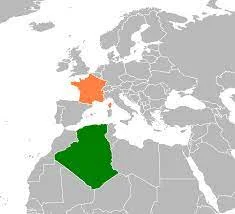Madagascar: the rains of cyclone Emnati, a solution to the drought
Cyclone Emnati killed at least six people in Madagascar.
But if tens of thousands of people on the island have been affected by gusty winds and cut roads. It would seem that the abundant rains generated by the cyclone have given hope to the farmers and breeders of the semi-arid lands of the far south of the island.
Over the past four years, this region of 1.3 million people has suffered from food insecurity due to very low rainfall.
The Ministry of Agriculture with the support of the World Bank and the Food and Agriculture Organization of the United Nations, has distributed 400 tons of seeds in recent months through the Ministry of Agriculture. Some crops were covered by water from the Mandrare River which overflowed into the Anosy region. But the wetlands will allow the villagers to replant new seeds.
During the hurricane season from November to April, the islands of the Indian Ocean are often crossed by storms.
In early February, Madagascar saw Cyclone Batsirai kill at least 121 people and devastate crops.
Algeria: what relationship with France 60 years after independence?
On the occasion of the 60th anniversary of the end of the Algerian war, the sociologist Samia Chabani, the president of the Association des Pieds Noirs Progressives, Jacques Pradel, and the documentalist of Algerian origin, Fatima Sissani , retrace the links between Marseille and Algerian history.
The city located in the south of France, welcomed thousands of French people from Algeria repatriated after Algerian independence in July 1962.
"Out of 800,000 inhabitants in Marseilles, nearly 200,000 to 300,000 are concerned, in one way or another, by Algeria and the history of the Algerian war, whether they are descendants of Algerian immigrants , or black feet, harkis, repatriated people.... This therefore constitutes, in the city and in the urban narrative, a considerable part of the history of Marseille." declared Samia Chabani, sociologist and president of the Ancrages association in Marseille .
In 60 years, Algeria has gone through multiple crises with France, often fueled by domestic politics. Despite criticism from both sides of the Mediterranean, relations between the two countries remained stable until the 1990s.
"We are currently in front of the Bugeaud school, well, the former Bugeaud school, in the third arrondissement of Marseille. The name of this school, and of the eponymous street, gave rise to numerous protests to rename the school since he refers to Marshal Bugeaud, who took part in the conquest of Algeria, but who was known for his absolutely infamous practices,” added Samia Chabani, sociologist and president of the Ancrages association in Marseille.
The eight-year war of independence that ended with the signing of the Évian Accords on March 18, 1962 caused both material and immaterial damage. In the 1990s, this common history was not always assumed calmly by the authorities as well as by societies.
"Young people do not bear the weight of the difficult times that other generations, previous generations, have known. __They are freed from that. They are obviously much more open to the reality of history. " explained Jacques Pradel, president of the Progressive Blackfoot Association.
According to French historians, half a million civilians and combatants died - including 400,000 Algerians - while Algerian authorities insist that 1.5 million people were killed.
When he came to power in 2017, French President Emmanuel Macron worked to heal the wounds of the past through a series of official and symbolic gestures. However, he refused to apologize for colonialism.
This decision, added to the president's commentator who questioned the existence of Algeria as a nation before the invasion of France in the 1800s.
In response to this, Algeria announced the withdrawal of its ambassador to France after these words.
Uganda: bitter coffee against the ICO
Uganda has announced a two-year suspension from its membership in the International Coffee Organization (ICO).
While the country has been marketing the drink under the international coffee agreement since 2007, this decision echoes the criticisms made by several other producing countries who believe that the agreement only favors consumer countries.
By refusing to support the two-year extension of the international coffee agreement, Uganda hopes to pressure the organization to address its concerns. In particular, the country wants the ICO to take into account the added value of coffee, and not just the green beans.
A system that favors consumer countries such as the United States , Germany and the United Kingdom that buy green coffee to add value and then obtain the best prices. Uganda's other concern is that the classification of coffees at the ICO does not promote the uniqueness of the country as the birthplace of Robusta coffee or Ethiopia as the origin of Arabica .
Uganda's monthly coffee export earnings in December hit a record high of $75.2 million. A fine performance for the coffee-producing country which had not experienced such results since 2011.






